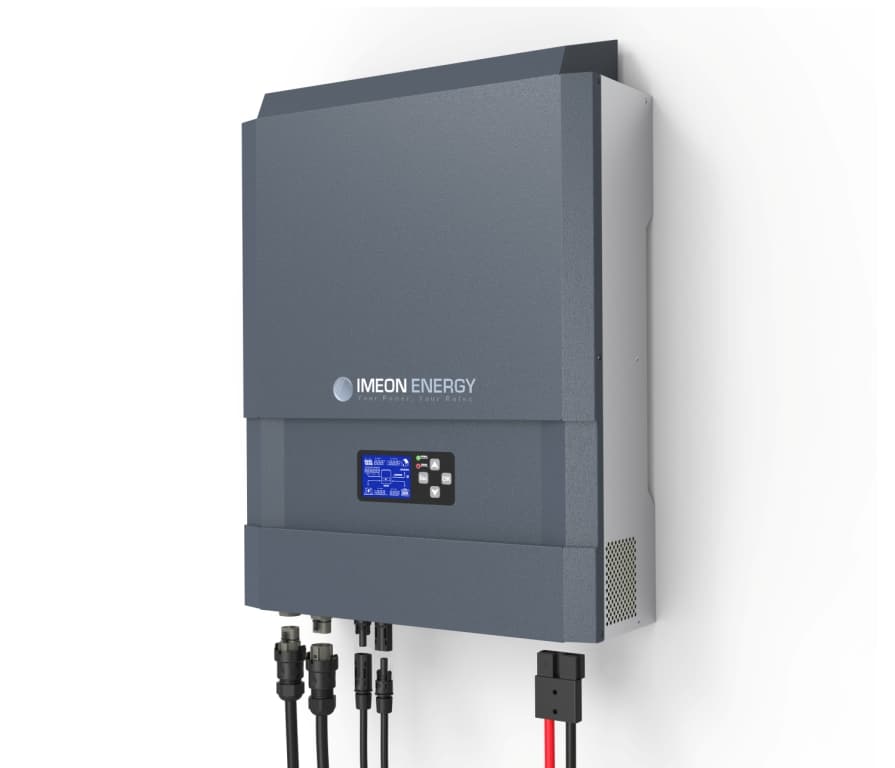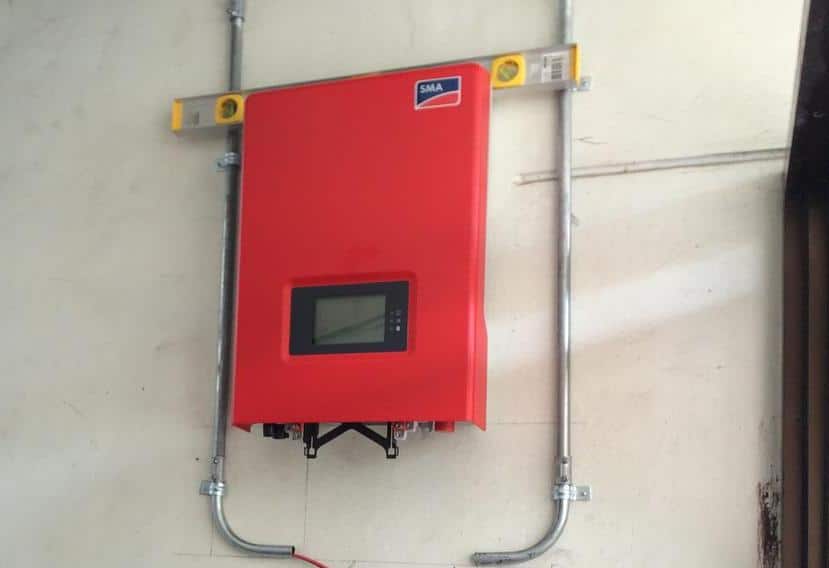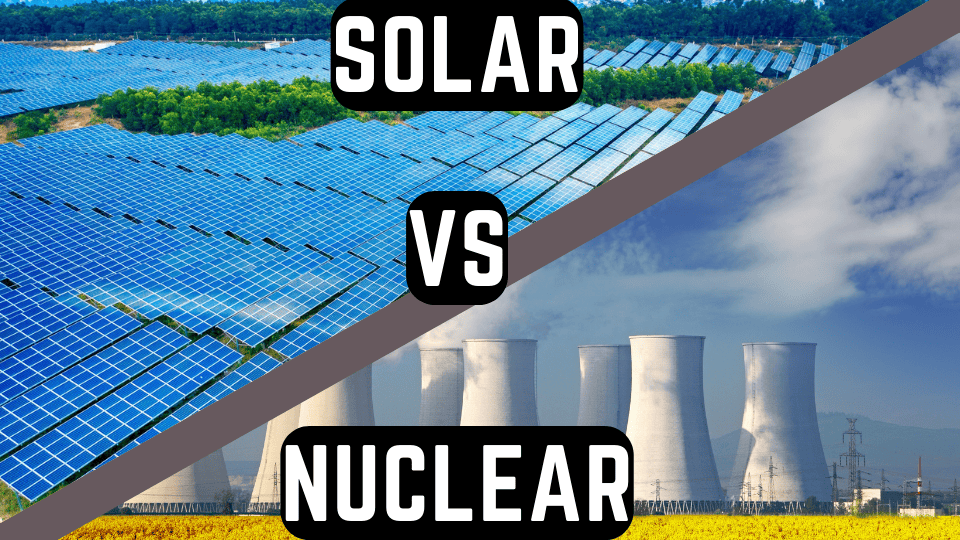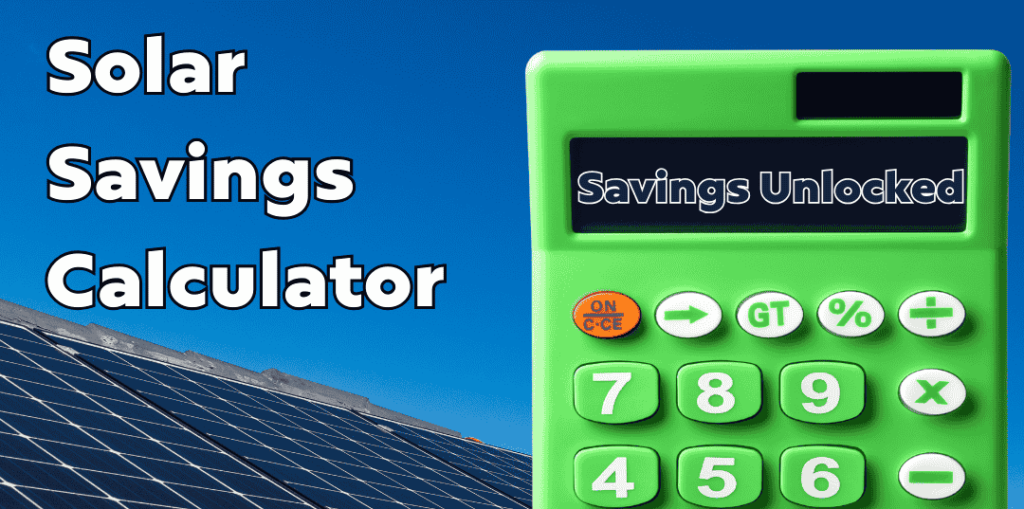If you’re looking to install solar panels on your home, you’ll need to decide between a grid-tie or hybrid inverter. Both have their benefits, but which one is right for you? In this blog post, we’ll explore the differences between grid-tie and hybrid inverters, as well as the pros and cons of each option. By the end, you should have a better idea of which type of inverter is best for your needs.
What Is An Inverter And How Does It Work?
An inverter is a device that converts direct current (DC) to alternating current (AC). This is an important step in converting the electricity produced by solar panels or wind turbines into a form that can be used in your home. The inverter is a critical component of any off-grid or grid-tied renewable energy system and should be sized appropriately for the application.
If you are looking for a solar inverter that is more efficient, flexible, and reliable, then a hybrid inverter is the right choice for you.
What Is A Hybrid Inverter?
A hybrid inverter or a smart grid inverter is a type of solar inverter that can both be grid-tied and can operate as a standalone system during a power outage. Intelligent hybrid inverters are usually used in solar power applications using renewable energy for home consumption, especially for solar photovoltaic installations. In contrast to typical inverters, hybrid inverters store energy only when it is needed, rather than systematically storing it in batteries. Through an internal intelligent apparatus control unit, this system also allows users to choose whether electricity from photovoltaic panels should be stored or consumed. In short, this type of inverter is able to do everything that a grid-tie inverter can, but with additional bells and whistles.
Hybrid Inverter Usage:
- Use in hybrid mode – The inverter is connected to the grid and works with a battery bank. Hybrid inverters are distinguished by their dual functioning, which allows for energy control.
- Use in Backup mode – The inverter takes over from the utility grid in case of a power outage and provides backup power for the home.
- Use in Off-Grid mode – With the option of connecting to a generator. The inverter must be connected to a battery bank and have actual off-grid capabilities; not all hybrid inverters are made equal or suitable for off-grid operation.
- Use in on-grid or grid-tie – The inverter is connected to the grid and feeds surplus power into the grid with the option of selling or storing energy.

A solar panel arrangement with a traditional inverter necessitates the use of a separate inverter to convert AC to DC and back. A solar panel system with a hybrid inverter, on the other hand, does not need a separate battery inverter. The generation of electricity fluctuates and may not be synced with the consumption of a load. It is required to store energy for later use and control energy storage and consumption with a hybrid inverter to bridge the gap between what is produced and what is used during the evening when there is no solar electricity production. Hybrid inverters, interestingly, can also be fitted without batteries.
Benefits of Using A Hybrid Inverter:
In comparison to a standard grid-tie inverter, a hybrid inverter has some advantages. Here are some key benefits:
- Increased Efficiency – A hybrid inverter is more efficient than a standard grid-tie inverter as it does not require the use of a separate battery inverter. This can save you money on your energy bill in the long run.
- Increased Flexibility – A hybrid inverter gives you more flexibility in how you use your solar energy system. You can use it in backup mode, off-grid mode or grid-tie mode depending on your needs.
- Increased Reliability – A hybrid inverter is more reliable than a standard grid-tie inverter as it has a built-in battery backup system. This means that you can still use your solar energy system during a power outage.
- Reduced Maintenance – A hybrid inverter requires less maintenance than a standard grid-tie inverter as it has fewer components. This can save you time and money in the long run.
- Increased Durability – A hybrid inverter is more durable than a standard grid-tie inverter as it is built to withstand tougher conditions.
If you are looking for a solar inverter that is more efficient, flexible, and reliable, then a hybrid inverter is the right choice for you. Hybrid inverters are the latest innovation in solar technology and offer a number of advantages over traditional grid-tie inverters.
Drawbacks of Using A Hybrid Inverter:
There are a few drawbacks to using a hybrid inverter. Here are some of the main ones:
- Higher Cost – A hybrid inverter is more expensive than a standard grid-tie inverter. However, this added cost may be worth it for the benefits that it offers.
- Limited Compatibility – Not all hybrid inverters are compatible with all solar panel systems. This means that you may need to replace your existing solar panels if you want to switch to a hybrid inverter.
- Longer Installation Time – A hybrid inverter takes longer to install than a standard grid-tie inverter. This is because the installation process is more complex and requires more components.
Take this into account when deciding if a hybrid inverter is right for you. The above drawbacks may not be a big deal if the benefits of a hybrid inverter outweigh them.
What Is A Grid-Tie Inverter?
A grid-tie inverter (GTI) is a type of electrical inverter that converts the DC electricity generated by solar panels or wind turbines into AC electricity that can be used by your home or business. GTIs are typically used in conjunction with renewable energy sources such as solar PV systems or small wind turbines. Grid-tie inverters must precisely match the voltage and phase of the grid sine wave AC waveform to inject electrical power into the grid effectively and safely.
Benefits of Using A Grid-Tie Inverter:
Grid-tied inverters are the simplest and most common type of solar inverters. They are designed to work directly with grid-tie systems, without the need for batteries or an off-grid inverter. Grid-tied inverters take the DC power from your solar panels and convert it into usable AC power that is compatible with the electrical grid.

Here are some key benefits of using grid-tie inverters:
- Increased system efficiency – When your solar panels are producing more electricity than your home is using, the extra power will flow back out to the grid. A grid-tie inverter will automatically turn off when it senses that the grid has been restored, preventing any excess power from going to waste.
- No batteries required – Grid-tie inverters do not require batteries, which means you can save money on the initial cost of your solar system. Batteries can also add maintenance and replacement costs over time.
- Simple installation – Grid-tie inverters are typically easier to install than off-grid or battery-based inverters. This is because you do not need to worry about wiring or connecting to the grid.
- Net metering – Many utilities offer net metering programs, which credit you for the extra power your system produces. This can help offset the cost of your solar system over time.
Drawbacks of Using A Grid-Tie Inverter:
While grid-tie inverters offer many benefits, there are also some potential drawbacks to consider.
- Interruptions in service – If the grid goes down, your solar system will also be shut off. This is because a grid-tie inverter needs to be able to communicate with the grid in order to function properly.
- Limited power production – Grid-tie inverters are not capable of producing energy when the grid is unavailable. If you live in an area with frequent power outages, you may need to consider an off-grid or battery-based inverter.
Grid-tie inverters are a good choice for many solar PV systems. However, it is important to understand the potential drawbacks before making a decision.
Which Is The Best For Me?
There are factors to consider when trying to decide whether a hybrid or grid-tie inverter is right for you.
The first factor is cost. Hybrid inverters tend to be more expensive than grid-tie inverters. The extra cost may be worth it if you live in an area with frequent power outages. Another factor to consider is installation time. Hybrid inverters generally take longer to install than grid-tie inverters. This is because the installation process is more complex and requires more components.
Final Thoughts
When it comes to solar energy, there are a lot of choices to make. One of the most important is whether you should go with a hybrid or grid-tie inverter. We’ve looked at the pros and cons of both types and think that, for most people, going with a hybrid inverter is the best choice. If you’re still not sure which type of inverter is right for you, our team can help you make the decision based on your specific needs and requirements. Contact us today to get started!





